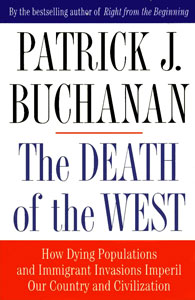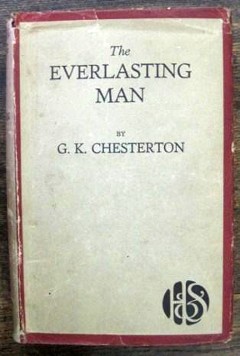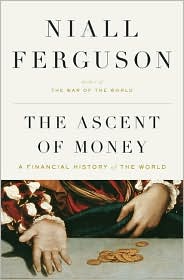Related Research Articles
World history or global history as a field of historical study examines history from a global perspective. It emerged centuries ago; leading practitioners have included Voltaire (1694–1778), Hegel (1770–1831), Karl Marx (1818–1883), Oswald Spengler (1880–1936), and Arnold J. Toynbee (1889–1975). The field became much more active in the late 20th century.

The "Clash of Civilizations" is a thesis that people's cultural and religious identities will be the primary source of conflict in the post–Cold War world. The American political scientist Samuel P. Huntington argued that future wars would be fought not between countries, but between cultures. It was proposed in a 1992 lecture at the American Enterprise Institute, which was then developed in a 1993 Foreign Affairs article titled "The Clash of Civilizations?", in response to his former student Francis Fukuyama's 1992 book The End of History and the Last Man. Huntington later expanded his thesis in a 1996 book The Clash of Civilizations and the Remaking of World Order.

Peter William Sutcliffe, also known as Peter Coonan, was an English serial killer who was convicted of murdering thirteen women and attempting to murder seven others between 1975 and 1980. He was dubbed in press reports as the Yorkshire Ripper, an allusion to the Victorian serial killer Jack the Ripper. He was sentenced to twenty concurrent sentences of life imprisonment, which were converted to a whole life order in 2010. Two of Sutcliffe's murders took place in Manchester; all the others were in West Yorkshire. Criminal psychologist David Holmes characterised Sutcliffe as being an "extremely callous, sexually sadistic serial killer."

The London Review of Books (LRB) is a British literary magazine published bimonthly that features articles and essays on fiction and non-fiction subjects, which are usually structured as book reviews.
A civilization or civilisation is a complex society

Sir Niall Campbell FergusonFRSE is a Scottish–American historian who is the Milbank Family Senior Fellow at the Hoover Institution and a senior fellow at the Belfer Center for Science and International Affairs at Harvard University. Previously, he was a professor at Harvard University, the London School of Economics, New York University, a visiting professor at the New College of the Humanities, and a senior research fellow at Jesus College, Oxford. He was a visiting lecturer at the London School of Economics for the 2023/24 academic year and at Tsinghua University, China in 2019–20. He is a co-founder of the University of Austin, Texas.
The Protestant work ethic, also known as the Calvinist work ethic or the Puritan work ethic, is a work ethic concept in sociology, economics, and history. It emphasizes that a person's subscription to the values espoused by the Protestant faith, particularly Calvinism, result in diligence, discipline, and frugality.

Ancient Judaism is an essay written by the German economist and sociologist Max Weber in the early 20th century. The original edition appeared in the 1917–1919 issues of the Archiv für Sozialwissenschaft und Sozialpolitik. Marianne Weber, his wife, published the essays as Part Three of his Gesammelte Aufsatze zur Religionssoziologie in 1920–1921. An English translation was made in 1952 and several editions were released since then.

The Death of the West: How Dying Populations and Immigrant Invasions Imperil Our Country and Civilization is a 2001 book by the paleoconservative commentator Patrick J. Buchanan. In his book, Patrick J. Buchanan argues that Western culture will soon be imperiled.

The Everlasting Man is a Christian apologetics book written by G. K. Chesterton, published in 1925. It is, to some extent, a deliberate rebuttal of H. G. Wells' The Outline of History, disputing Wells' portrayals of human life and civilisation as a seamless development from animal life and of Jesus Christ as merely another charismatic figure. Chesterton detailed his own spiritual journey in Orthodoxy, but in this book he tries to illustrate the spiritual journey of humanity, or at least of Western civilisation. The author Ross Douthat credits that, "Chesterton's somewhat loosey-goosey outline of history doubles as the best modern argument for Christianity I've ever read. You have to give in to the Chestertonian style, but if you do, be careful—you might just be converted."
James Preston O'Donnell was an American author and journalist.

Science and Civilisation in China (1954–present) is an ongoing series of books about the history of science and technology in China published by Cambridge University Press. It was initiated and edited by British historian Joseph Needham (1900–1995). Needham was a well-respected scientist before undertaking this encyclopedia and was even responsible for the "S" in UNESCO. To date there have been seven volumes in twenty-seven books. The series was on the Modern Library Board's 100 Best Nonfiction books of the 20th century. Needham's work was the first of its kind to praise Chinese scientific contributions and provide their history and connection to global knowledge in contrast to eurocentric historiography.

The Ascent of Money: A Financial History of the World is a 2008 book by then-Harvard professor Niall Ferguson, and an adapted television documentary for Channel 4 (UK) and PBS (US), which in 2009 won an International Emmy Award. It examines the long history of money, credit, and banking.

The Western world, also known as the West, primarily refers to various nations and states in the regions of Australasia, Western Europe, and Northern America; with some debate as to whether those in Eastern Europe and Latin America also constitute the West. The Western world likewise is called the Occident in contrast to the Eastern world known as the Orient. The West is considered an evolving concept; made up of cultural, political, and economic synergy among diverse groups of people, and not a rigid region with fixed borders and members. Definitions of "Western world" vary according to context and perspectives.

Western culture, also known as Western civilization, European civilization, Occidental culture, or Western society, includes the diverse heritages of social norms, ethical values, traditional customs, belief systems, political systems, artifacts and technologies of the Western world. The core of Western civilization, broadly defined, is formed by the combined foundations of Greco-Roman civilization and Christianity. While Western culture is a broad concept, and does not relate to a region with fixed members or geographical confines, it generally relates to the cultures of countries with historical ties to a European country or a number of European countries, or to the variety of cultures within Europe itself. However, countries toward the east of Europe are often excluded from definitions of the Western world.
Monsters Resurrected is an American edutainment television series that premiered on September 13, 2009, on the Discovery Channel. The program reconstructs extinct animals of both Mesozoic and Cenozoic. It is also called Mega Beasts.

Wonders of the Universe is a 2011 television series produced by the BBC, Discovery Channel, and Science Channel, hosted by physicist Professor Brian Cox. Wonders of the Universe was first broadcast in the United Kingdom on BBC Two from 6 March 2011. The series comprises four episodes, each of which focuses on an aspect of the universe and features a 'wonder' relevant to the theme. It follows on from Cox's 2010 series for the BBC, Wonders of the Solar System. An accompanying book with the same title was also published.

Civilisations is a 2018 British art history television documentary series produced by the BBC in association with PBS as a follow-up to the original 1969 landmark series Civilisation by Kenneth Clark. Individual episodes are presented by Simon Schama, Mary Beard, and David Olusoga, with music composed by Tandis Jenhudson. The PBS release differs in several respects, including series narration by Liev Schreiber.

The bibliography of Niall Ferguson, a Scottish historian based in the United States who is the Milbank Family Senior Fellow at the Hoover Institution at Stanford University and a Senior Faculty Fellow at the Belfer Center for Science and International Affairs at Harvard University. Previously, he was a professor at Harvard, the London School of Economics and New York University, a visiting professor at the UK New College of the Humanities, and a senior research fellow at Jesus College, Oxford, England.
References
- 1 2 3 4 5 6 7 8 9 10 11 12 13 "Episode Guides". Channel 4. Retrieved 14 July 2014.
- ↑ "Civilization: The West and the Rest". Docuwiki. Retrieved 14 July 2014.
- 1 2 3 4 5 6 "Civilization: Is the West History?". Top Documentary Films. Retrieved 14 July 2014.
- ↑ Newsome, Brad (2 August 2011). "Civilization: Is the West History?, Tuesday, August 2". The Sydney Morning Herald . Retrieved 15 July 2014.
- ↑ Sutcliffe, tom (7 March 2011). "The Weekend's TV". The Independent . Retrieved 15 July 2014.
- ↑ Wollaston, Sam (20 March 2011). "TV review". The Guardian . Retrieved 15 July 2014.
- ↑ Harvey, Chris (4 March 2011). "Civilisation: is the West History?, Channel 4, Review". The Daily Telegraph . Retrieved 15 July 2014.